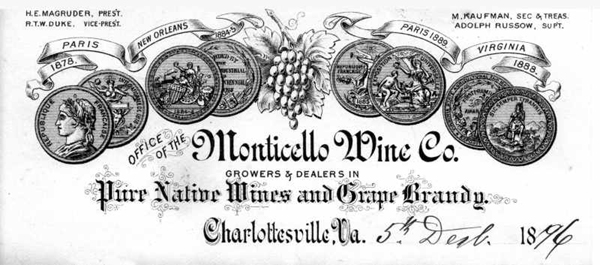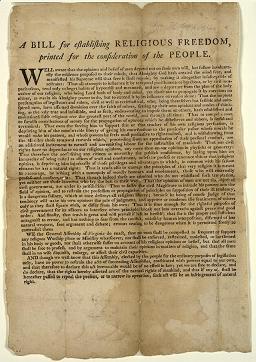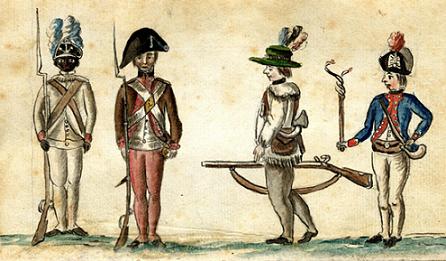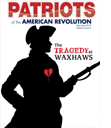It's for everyone.

ABOVE: An 1896 logo label for the Monticello Wine Company
(Source: Albemarle Charlottesville Historical Society).
Although I am far from a connoisseur, I do enjoy my cocktail hour and on occasion, a good glass of wine. I prefer white over red, but am open to suggestions. My parents are wine enthusiasts and they have gifted me with a lovely bottle on occasion from their various taste-tours. Every two years I spend a wonderful weekend at Gray Ghost Vineyards for their Civil War Authors Day and this year I will be doing both a signing and vignette on Saturday, November 13, 2010 from 11:00 am to 5:00 pm. In addition to spending time with some great authors like Clint Johnson, I also get complimentary meals and a commemorative “and bottomless” glass.
While studying early American culture, it is not surprising to find that wine is an everyday mention. Clearly colonial society mirrored their native land’s passion for the beverage. Wine was essentially the ‘bottled water of the day’ and everyone drank it regardless of class or station. Thomas Jefferson, a man of many refined tastes, presented his own personal philosophies on determining wine types in a letter penned to Stephen Cathalan on May 26, 1819. He wrote:
“I will explain to you the terms by which we characterise different qualities of wines. They are 1. sweet wines, such as Frontignan & Lunel of France, Pacharetti doux of Spain, Calcavallo of Portugal, le vin du Cap &c. 2. Acid wines, such as the Vins de Graves, du Rhin, de Hocheim &c. 3. dry wines, having not the least either of sweetness or of acidity in them, as Madere sec, Pacharetti sec, vin d’Oporto, &c. and the Ledanon which I call a dry wine also. 4,. silky wines, which are in truth a compound in their taste of the dry wine dashed with a little sweetness, barely sensible to the palate: the silky Madeira which we sometimes get here, is made so by putting a small portion of Malmsey into the dry Madeira. There is another quality of wine which we call rough or astringent, and you also, I believe, call it astringent, which is often found in both the dry & silky wines. There is something of this quality for example in the Ledanon, and a great deal of it in the vin d’Oporto, which is not only dry, but astringent approaching almost to bitterness. Our vocabulary of wines being thus explained, I will observe that the wine of Nice sent me by Mr. Spreafico in 1816. was silky and a little astringent and was the most delicious wine I ever tasted, and the most esteemed here generally. That of 1817. was entirely dry, moderately astringent and a very good wine; about on a footing with Ledanon. That of 1818. last received, has it’s usual astringency indeed, but is a little acid, so much so as to destroy it’s usual good flavor. Had it come in the summer I should have suspected it’s having acquired that acidity by fretting in the hold of the ship, or in our hot warehouses on a summer passage, but it was shipped at Marseilles in October, the true time for shipping delicate wines for this country. I will now say why I go into these details with you. In the first place you are not to conclude that I am become a buveur. My measure is a perfectly sober one of 3. or 4. glasses at dinner, & not a drop at any other time. But as to these 3. or 4. glasses Je suis bien friand. I go however into these details because in the art, by mixing genuine wines, of producing any flavor desired, which Mr. Bergasse possesses so perfectly, I think it probable he has prepared wines of this character also; that is to say of a compound flavor of the rough, dry, and sweet, or rather of the rough and silky; or if he has not, I am sure he can. The Ledanon, for example, which is dry and astringent, with a proper proportion of wine which is sweet and astringent, would resemble the wine of Bellet sent me in 1816. by Mr. Spreafico. If he has any wines of this quality, I would thank you to add samples of 2. or 3. bottles of each of those he thinks approaches this description nearest. . . . I have labored long and hard to procure the reduction of duties on the lighter wines, which is now effected to a certain degree. I have labored hard also in persuading others to use those wines. Habit yields with difficulty. Perhaps the late diminution of duties may have a good effect. I have added to my list of wines this year 50. bottles of vin muscat blanc de Lunel. I should much prefer a wine which should be sweet and astringent, but I know of none. If you know of any, not too high priced I would thank you to substitute it instead of the Lunel.”
Mmm, OK……Thomas Jefferson was beyond brilliant and is obviously one of my favorite subjects, but in reading the above quote all I have to say is “WHAT?” No wonder we plain folks find wine discussions intimidating. It’s a drink for God’s sake. I shouldn’t need a degree in chemistry to pick one!
Now to be fair, Jefferson had a passion for wine (on two continents). Historian John Hailman wrote a book on the subject titled Thomas Jefferson on Wine. In it he depicts a man who had a superior knowledge of wine quality and production. The book concludes with an overview of the current restoration of the vineyards at Monticello and the new Monticello Wine Trail and its numerous world-class Virginia wineries. This reinforces the notion that wine really mattered to Monticello’s master and was his drink of choice.
In a letter to M. de Neuville in 1818 Jefferson did express a penchant for responsible drinking. He wrote, “I rejoice, as a moralist, at the prospect of a reduction of the duties of wine, by our national legislature….No nation is drunken where wine is cheap; and none sober, where the dearness of wine substitutes ardent spirits as the common beverage…”
Most people aren’t aware that one of the most expensive wines ever bought was the 1787 Chateau Lafite which was sold at Christie’s London in December, 1985 for £105,000 (at that time equivalent of US $156,000). This bottle is believed to be from the cellar of Thomas Jefferson as it had the “Th.J” initials etched into the glass. It became known as “The Billionaire’s Vinegar.” Today you can purchase a variety of reasonably-priced wines at Monticello that are produced from the same soil that their owner toiled.
All that said, Mr. Jefferson’s remarks echo the language of superiority and elitist mentality that exists in wine culture today. Many people, me included, have no clue of what constitutes a good wine. Therefore we don’t visit wineries because we are embarrassed of what to say. My cousin, a very successful attorney, collects rare wines and looks at them like an investment. I can’t even determine what to serve with pasta. Rum and Coke is my drink of choice because it has two parts. You can’t screw that up.
Fortunately, a childhood friend of mine who is a budding wine aficionado (claiming to be a novice) recently launched a wonderful blog titled Wine Wired: Resource for the every day wine lover. His name is Dennis Fraley and his vision for the language of wine enjoyment is both refreshing and frankly, much needed. Wine Wired features practical descriptions of wines, info on grapes and vineyards, an excellent section on pairing wine with food, and reader comments that give the site a real sense of community.
According to the About Us, Dennis explains how he felt the need to make a site that catered to everyone.
“The more I talked to people and the more I researched, I found that this whole world of wine was complicated and pretentious. What a shame to have something so amazing and keep it “hidden” and “exclusive” with special vocabulary and complicated themes. Actually, the first time I went to a true wine event with a tasting and discussion forums, I felt like someone forgot to show me the secret handshake. This site was created to do a number of things. It allows an outlet for this wine lover to write about experiences and knowledge gained in the world of wine. This site is also designed to instill in fellow wine drinkers that wine should be fun and simple, not snobby or exclusive. Wine is for everyone.”
Bravo my friend. Maybe now I can understand what the hell my friends are talking about and find something to pair with my wife’s outstanding chicken. I toast you.
THE Announcement
As promised...today it is with great anticipation that I can finally announce some of the details about my next book project. This will be my 7th title, and easily the most ambitious, challenging, and scholarly to date. It will also require the most research and will likely not see shelves until 2012 (at the earliest). I have made several contacts recently which have directed me to some tremendous primary sources and archived reference that has yet to see the light of day. As a result, a rarely discussed aspect of a very famous life can now be shared.
The working title is Faith, Freedom, and Fallacy: Thomas Jefferson and the Virginia Statute of Religious Freedom. This book will present: Thomas Jefferson’s time at Fredericksburg in 1777, his meeting there at Weedon’s Tavern, in which he agreed to author the Virginia Statute of Religious Freedom, the story surrounding the writing of it, why Jefferson took so much pride in its completion, and how the results are debated and commemorated to this day.
This subject has not been examined definitively in any single study –at least from the angle at which I am pursuing it. In 1998, Cambridge Studies in Religion and American Public Life Series included a book titled The Virginia Statute for Religious Freedom: Its Evolution and Consequences in American History, but as this book looks at the statute from more of a political and sociological perspective, my study will (hopefully) be more intimate and include unpublished material on Jefferson’s time here in Fredericksburg.
Yes, there is a tentative publisher, although I have not signed a formal agreement yet. There is some discussion going on over the length of the manuscript. I am shooting for a longer piece than any of my previous books.
I will be working with sources from the Thomas Jefferson Foundation at Monticello and Central Rappahannock Regional Library, as well as some private materials from personal collections. I am waiting until I give my address on Jackson’s Valley Campaign at Lexington in June, and the release of our documentary on Richard Kirkland at the end of that month before directing all of my energies into this manuscript.
I have begun the process of acquiring data and can’t wait to see where this journey goes. I stated back in 2008 that my next goal was to pen something significant on Thomas Jefferson. Since then I have read four outstanding books on the man all of which I could never top. I just needed to find an original topic that would allow me to present something meaningful and interesting. I now have my subject and my sources. Stay tuned.
Racism and Recruiting
ABOVE: Four Soldiers (Jean Baptiste Antoine de Verger, circa 1781) From left to
right, a black soldier of the 1st Rhode Island Regiment, a New England militiaman,
a frontier rifleman, and a French officer. (Source: Brown University)
Over the last few months I have written a few pieces, some for magazines and others for this blog, dealing with the sensitive issue of race in Colonial America. One feature for PAR magazine presented the way that slavery is now being interpreted at the new Monticello Visitor’s Center. A recent post dealt with George Washington's slaves and their emancipation according to his will. The subject of racial conflict, albeit uncomfortable at times, has become an interesting topic to say the least. I have examined it briefly in my previous work, when presenting the history of the split between the white and black members of the Fredericksburg Baptist Church prior to the Civil War, but never to the extent that I am researching it now.
I am nearing the completion of an outstanding study by Edward G. Lengel titled General George Washington: A Military Life. What I really enjoy about this book is the unbiased and balanced presentation that the author, a military historian and professor from UVA, has achieved. Readers are presented with an excellent portrait of a brilliant, but not infallible commander. One chapter near the end of the book speaks frankly to Washington’s prejudice and ardent refusal to enlist and arm African-Americans.
Lendel’s version of this subject is perhaps the most unsympathetic, yet fairest that I have read. His take on the matter has provoked much thought in regards to the general that I was familiar with. I now see a distinct difference between the Washington at war, initially refusing to diversify his forces despite a tremendous lack of manpower, and the one we see conflicted over the institution of slavery while freeing his servants in death. Much like Lincoln, Washington evolved in his attitudes toward minorities over the course of his life.
This is understandable, but what I can’t understand is the manner in which an otherwise stellar commander would compromise his troops (and cause) due to a racial bias. In fact, at this point in the conflict, why would anyone, soldier or politician, racist or not, restrict the addition of more men in the field? Washington was not the only one guilty of discrimination. Congress echoed his sentiments and even went further in their own restrictions.
Unlike the American Civil War, in which preserving the institution of slavery was a major factor behind secession, the Revolutionary War was a fight for independence from England. So while I can easily understand why the Confederacy would refrain from arming slaves, why wouldn’t the Continental Congress call for every able-bodied male to fight against the most well equipped and trained army in the world?
Simply put, Washington and his peers were shooting themselves in the foot. Regardless of one’s personal feelings on equality, why wouldn’t they take anyone who wished to serve? This, in my opinion, speaks to how racism and the institution of slavery held a tight grip on society in order to maintain the status quo.
As the supreme commander of a fledgling army and a Virginia planter, Washington was obviously put in a very complicated position. If he armed blacks (freed or slave), he risked infuriating his fellow slaveholders. If he refused, his forces would continue to dwindle. What this future politician did was hold out as long as he could and allow others to take steps toward an integrated army. This absolved him of responsibility either way and preserved his favor in the eyes of both sides of the argument. It was brilliant.
Still, I find it difficult to comprehend how a man whose forces were in such desperate need of reinforcements could refuse volunteers. (The notion of arming blacks was only considered after the British Army began padding their own ranks with both African and Native Americans.) Why? Was Washington cognizant of the political-ramifications of integrating the army and simply protecting his own future? Or was his racial prejudice at the time too stubborn to compromise? I just don’t know, but I think it would make for an interesting discussion.
What are your thoughts on this subject? What do you think were General George Washington's motivations for preventing blacks from serving under his command as long as he did? Were they personal or professional? Political? Military? Racist? Or all of the above?
Rather than simply extracting data points from Lengel’s book, I am quoting a portion of it here in it’s entirety with hopes that it may generate some feedback. I am also going to email the professor with an open invitation to comment and/or guest post on this subject.
Excerpt taken from General George Washington: A Military Life by Edward G. Lengel (Random House Trade Paperbacks, January, 2007) BUY THE BOOK:
[Quote] Social considerations-or, to put it more acutely, prejudice-also prevented Washington from welcoming blacks into the Continental Army; but his attitudes on this subject shifted over time. In July 1775 at Cambridge, Massachusetts, he had expressed consternation at the number of “Boys, Deserters, and Negroes” in the ranks. At his instigation the adjunct general promptly directed recruiting officers not to enlist “any deserter from the Ministerial army, nor any stroller, negro, or vagabond.” Three months later, when Washington asked his officers whether blacks already in the army should be reenlisted, they “agreed unanimously to reject all Slaves, & by a great Majority to reject Negroes altogether.” The commander-in-chief agreed, and on November 12th he ordered that “neither Negroes, Boys unable to bare Arms, nor old men unfit to endure the fatigues of campaign, are to be enlisted.” Blacks, the directive implied, were just as “unfit” to serve as boys or old men.
Washington issued these orders unaware that days before, on November 7th, royal governor Lord Dunmore of Virginia had declared his willingness to grant freedom to slaves and indentured servants who joined the British standard. This socially subversive proclamation outraged Virginia slaveholders. Writing to Virginia delegate Richard Henry Lee on December 26th, Washington denounced Dunmore’s “diabolical schemes” and rumbled that “if My Dear Sir that Man is not crushed before Spring, he will become the most formidable Enemy America has-his strength will Increase as a Snow ball by Rolling; and faster, if some expedient cannot be hit upon to convince the Slaves and Servants of the Impotency of His designs.” Washington’s feeble “expedient” amounted to allowing recruiting officers to enroll new volunteers who were free blacks, but not slaves. Congress promptly undercut him by resolving only to enlist “the free negroes who have served faithfully in the army at Cambridge,” but not to accept any new applicants.
[The chapter then goes on to describe the efforts by other officers to start integrated units including the consolidated 1st- and 2nd Rhode Island Battalion which was ¾ black. It then presents the tireless petitioning by one of the commander-in-chief’s aides, John Laurens, to arm freed slaves. Washington remained steadfast.]
…In any event Washington offered no public support for the proposal. And a year later, as Laurens still struggled to make his dream a reality, Washington dismissed it as infeasible. The idea “has never employed much of my thoughts,” he admitted in a March 20, 1779, letter to Henry Laurens, but “the policy of arming Slaves in my opinion a moot point, unless the enemy set the example, for should we begin to form Battalions of them, I have not the smallest doubt…of their following in it, and justifying the measure upon our own ground. The upshot then must be who can arm fastest-and where are our Arms?” The last thing America needed was for the British to put muskets in the hands of thousands of ex-slaves. “Besides,” Washington continued, “I am not clear that a discrimination will not render Slavery more Irksome to those who remain in it-Most of the good and evil things of this life are judged of by comparison and I fear Comparison in this case will be productive of much discontent in those who are held in servitude.” In short, he seems to have feared that arming blacks on a large scale would spur an exodus from the plantations that might destroy the institution of slavery altogether. And that was something he feared to contemplate. [End quote]
Despite these issues African-Americans did serve in the Continental Army with distinction (only about 6% of troops were black), and much like the Loyalists of New Brunswick, they are now receiving recognition. Colonial Williamsburg’s website features an extraordinary paper by Noel B. Poirier titled Brave and Gallant Soldiers: African Americans and the Continental Army.
VAFB speech
Today I received a video of the address that I gave at the Virginia Farm Bureau Women’s Conference. I would like to thank Sherri McKinney, Sr. Producer at the VAFB, for shooting the piece. This 25-min. speech titled “Mary Ball Washington: The Mother of the Father of Our Country” has since then evolved into a 3,000+-word feature that will be running in the July/August issue of Patriots of the American Revolution, as well as a 40-min. presentation that I will be giving in October to the Stafford County Historical Society. This video was shot at the Fredericksburg Hospitality House, on Sunday, March 21, at 7:30 am. I was asked to provide a brief talk that would support the theme of “Past is Present,” and deliver it as a devotional in lieu of the church service that the 350+ attendees would be missing. I didn't have much time to prepare, but I'm fairly happy with how it turned out. Enjoy.
Mary Ball Washington (Part 1) from Michael Aubrecht on Vimeo.
Mary Ball Washington (Part 2) from Michael Aubrecht on Vimeo.









 Check out the
Check out the